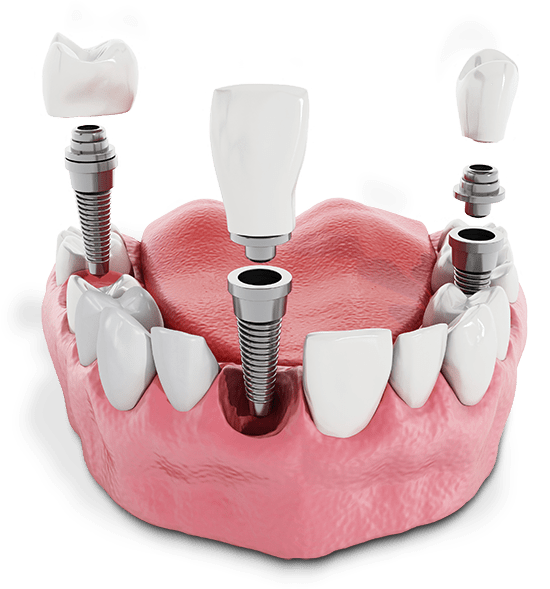

Facing the challenges of severe bone loss and missing teeth can be disheartening, and the prospect of traditional dental implants may seem daunting due to the requirement for adequate bone density. However, Implants & Periodontics has assisted patients with bone deterioration for more than 10 years. We understand the challenges, discomfort, and dental issues that come with bone deterioration, often manifesting as missing or misaligned teeth, pain during biting and chewing, and changes in facial features as the underlying bone deteriorates.
Dental implants offer an ideal solution to restore both form and function, yet insufficient bone density can pose a hurdle for traditional implants. The encouraging news is that zygomatic dental implants provide an effective alternative. These implants anchor more profoundly, allowing individuals with bone deterioration to reclaim their smiles fully.

Zygomatic implants emerge as a transformative option for individuals grappling with severe bone degradation, rendering traditional dental implants unfeasible. Distinguished by their longer structure, these implants secure themselves to the zygomatic (cheek) bone instead of the maxilla, the upper jaw. Our team strategically places them at an angle, ensuring robust support for restoring new teeth.
Everyday activities such as biting, chewing, and speaking become more manageable with the enhanced support from your implants and restoration. Notably, the facial structure undergoes positive changes as a result. Zygomatic implants stand out for their less invasive nature, eliminating the need for additional procedures like bone grafting. This reduced invasiveness contributes to a lower failure rate, as success is not contingent on grafting for enhanced bone density in the jawbone.

Ideal candidates are those who have experienced significant bone loss in the upper jaw due to factors such as periodontal disease, trauma, tumor removal, or tooth loss, making traditional dental implant surgery challenging or even impossible. Zygomatic dental implants present a viable alternative for individuals seeking to restore their smiles’ aesthetic and functional aspects.
Although you have faced previous dental implant challenges, zygomatic implants may offer a solution. Our experienced team conducts a comprehensive examination of your jawbone and zygoma to assess the suitability of zygomatic dental implants for your case. A thorough evaluation of your oral health and consideration of other relevant factors contribute to a personalized assessment that guides the success of the surgery.

Zygomatic dental implants present a viable alternative for individuals seeking to restore their smiles' aesthetic and functional aspects.
Your treatment will begin with a comprehensive consultation with our specialists, renowned for their precision and expertise. Leveraging cutting-edge technology and over a decade of experience, we meticulously plan every detail of your procedure, addressing your unique dental concerns and aligning your smile goals with your facial structure and skin tone. Following this detailed planning, we craft a personalized treatment plan tailored to achieve the most natural-looking and harmonious smile for you. We’ll then choose your preferred sedation option and schedule your procedure.
On the day of your surgery, we’ll administer your chosen sedation and make precise incisions in your zygoma, carefully placing 4-6 dental implants at a strategic 45-degree angle to ensure optimal stability. Once your implants are placed, we’ll attach an abutment to each post and sit your temporary teeth on top. With this temporary prosthesis, you can enjoy a complete smile strong enough to allow you to enjoy your favorite foods.
Over the next 4-6 months, your mouth will heal through osseointegration, where your implants fuse with your zygoma. Once healed, we’ll place your handcrafted final prosthesis so you can enjoy a lifetime of beautiful, healthy smiles!


I understand the information disclosed in this form may be subject to re-disclosure and may no longer be protected by HIPAA privacy regulations and the HITECH Act.
